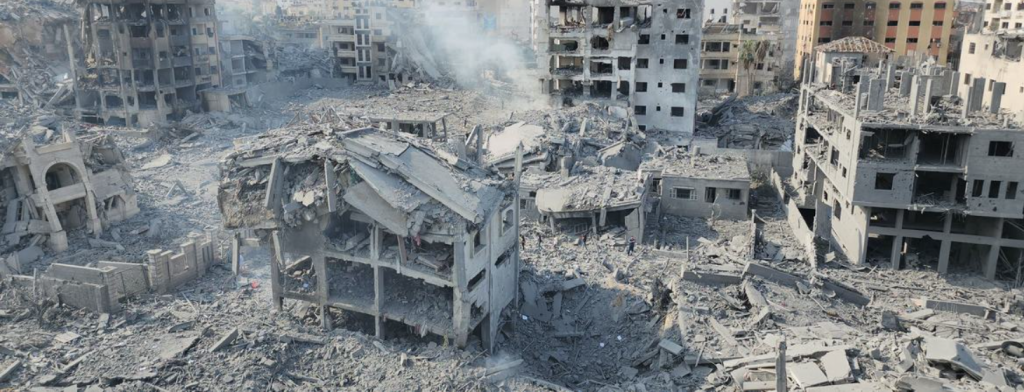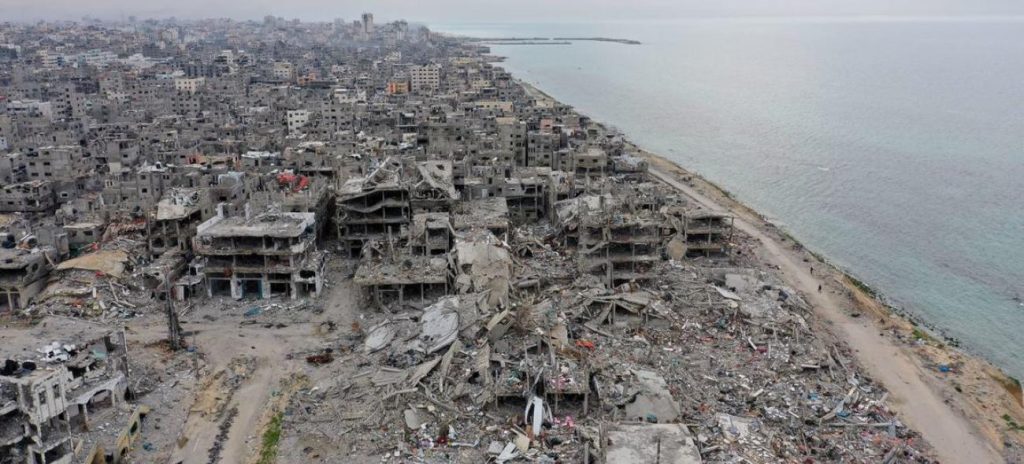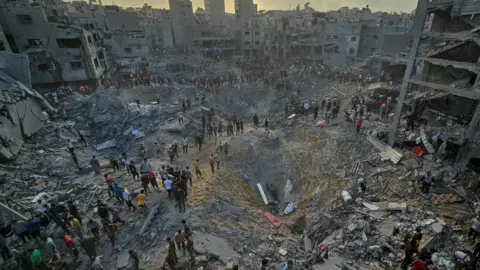By George Swarei

GENEVA— The United Nations Human Rights Office has released a sobering report assessing the devastating impact of a series of Israeli Defense Forces (IDF) bombings in Gaza. The report scrutinizes six specific attacks that took place between October 9 and December 2, 2023, resulting in significant civilian casualties and widespread destruction. The findings raise serious questions about the compliance of these actions with international laws of war, particularly the principles of distinction, proportionality, and precaution.
The Attacks

The report focuses on six emblematic attacks involving the use of GBU-31 (2,000 lbs), GBU-32 (1,000 lbs), and GBU-39 (250 lbs) bombs. These strikes targeted residential buildings, a school, refugee camps, and a market, culminating in the deaths of 218 civilians as verified by the UN Human Rights Office. However, the actual number of fatalities is believed to be much higher.
In one particularly devastating incident on December 2, 2023, strikes on the Ash Shujaiyeh neighborhood in Gaza City resulted in the destruction of 15 buildings and damage to 14 more. Verified visual evidence and satellite imagery indicate the use of approximately nine GBU-31 bombs, causing extensive damage over a 130-meter span and killing at least 60 people.
Violations of International Humanitarian Law

High Commissioner for Human Rights, Volker Türk, expressed grave concerns over the IDF’s methods and means of warfare, which appear to have consistently violated the requirement to minimize civilian harm. The report emphasizes that the use of explosive weapons with wide area effects in densely populated areas likely constitutes prohibited indiscriminate attacks. Such actions fail to distinguish between military targets and civilians, a fundamental principle of international humanitarian law (IHL).
The report also highlights the lack of warnings issued before five of the six attacks, a clear violation of the principle of precaution aimed at protecting civilian lives.
Statements and Reactions
In the midst of the bombings, IDF officials made statements suggesting a disregard for civilian life. An IDF spokesperson mentioned a focus on causing “maximum damage,” and another official referred to both Hamas and Gaza residents as “human beasts” to be “dealt with accordingly.” These statements, coupled with the total blockade imposed on Gaza, exacerbated the humanitarian crisis, depriving the population of essential services like electricity and water.
Broader Context and Accountability
While the report primarily criticizes Israel, it does not absolve Palestinian armed groups from their own violations of international law. The indiscriminate firing of projectiles into Israel by these groups also endangers civilian lives and violates IHL.
The report underscores the necessity for thorough, independent investigations into these incidents. Despite the IDF’s assertions that factual assessments are underway, there has been no transparency or accountability eight months after the first of these attacks. High Commissioner Türk called on Israel to publicly disclose detailed findings and ensure that those responsible for violations are held accountable.
Impact and Call for Justice
The human toll of the IDF’s bombing campaign is stark. By November 11, 2023, Gaza’s Ministry of Health reported 11,078 Palestinian deaths, with another 2,700 missing and around 27,490 injured. The UN Human Rights Office’s report is a crucial step towards acknowledging the severe humanitarian impact and advocating for the rights of victims to truth, justice, and reparations.
As the international community absorbs these findings, the call for adherence to international humanitarian law and the protection of civilians in conflict zones has never been more urgent. The UN report serves as a poignant reminder of the devastating consequences of warfare on innocent lives and the imperative for accountability in upholding the principles of humanity and justice.

